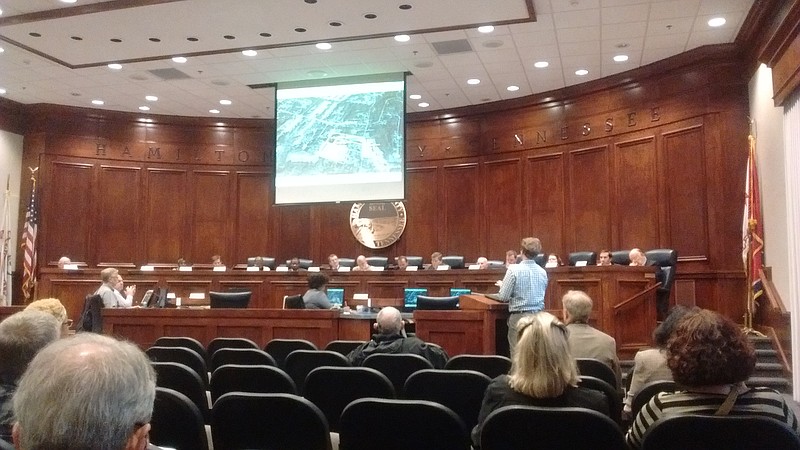Opinions ran strong and deep Monday at a public hearing on opening up Chattanooga to the building of accessory dwelling units, or carriage house-type residences adjacent to main homes.
About a dozen people showed up at the hearing before Chattanooga planners as the issue heads back to the City Council likely this spring.
Adrienne Powell of North Chattanooga said that if the units are permitted, then the number of people living on some small residential lots in that part of the city will swell.
"There are already problems navigating streets in North Chattanooga," she told the Chattanooga-Hamilton County Regional Planning Commission. "If you double the size of the neighborhood, it scares the hell out of me."
Powell suggested that if people want the units in neighborhoods, then permit them where there is a need for revitalization and not in areas "that are bursting at the seams."
But, Lisa Floden said she supports allowing accessory dwelling units across the city, noting there's "a big opportunity" for some detached garages to be transformed into new housing.
"I think it's an answer to affordable housing," she said, adding she likes the idea of the unit owner living on the lot.
John Dorough, however, cited a number of problems with the units, which are currently allowable in the center city where form-based code zoning is permitted.
He cited traffic and safety concerns, noting that many times the units will be used as short-term rental property.
"Don't make this an option," Dorough said.
Matt Lyle of Highland Park said he thinks the units and short-term vacation rentals are separate topics.
Accessory dwelling units could help people gain access to entry-level housing, he said.
"It's not fair to keep people out of housing options," Lyle said.
Still, a Hill City resident said he'd like to see just owner-occupied units approved. That could create "a beautiful, rich, dense fabric," he said.
Planning Commission member Mary K. Hiatt said the units are "a tool that can help people."
"This will shape our community," she said, adding that she agrees with owner-occupied units.
Panel Chairman Ethan Collier said that what makes "a great neighborhood is diversity," but too often there are "mono-cultures with one type of income."
The units "stand the potential to help change that and you end up with more diversity."
But Barry Payne, another panel member, said that limiting the units to owner-occupied could cause problems later when people die.
Also, he said, "if it's an answer to housing and you rule out the investor class, it limits what can be done quickly."
City Councilman Darrin Ledford, who also serves on the Planning Commission, said that "we need to get this right," whether that means using a smaller test area to start or not.
Chris Mabee, who serves on the planning panel, said the units have the potential to help more people "access the American dream of home ownership."
"I'd like to see it not limited to a specific geographic area," he said.
Panel member Jason Farmer said he's concerned with affordable housing and property rights.
"I'm concerned about vacation rentals and neighbors who would be turned over 52 times a year," he said.
Contact Mike Pare at mpare@timesfreepress.com or 423-757-6318. Follow him on Twitter @MikePareTFP.
